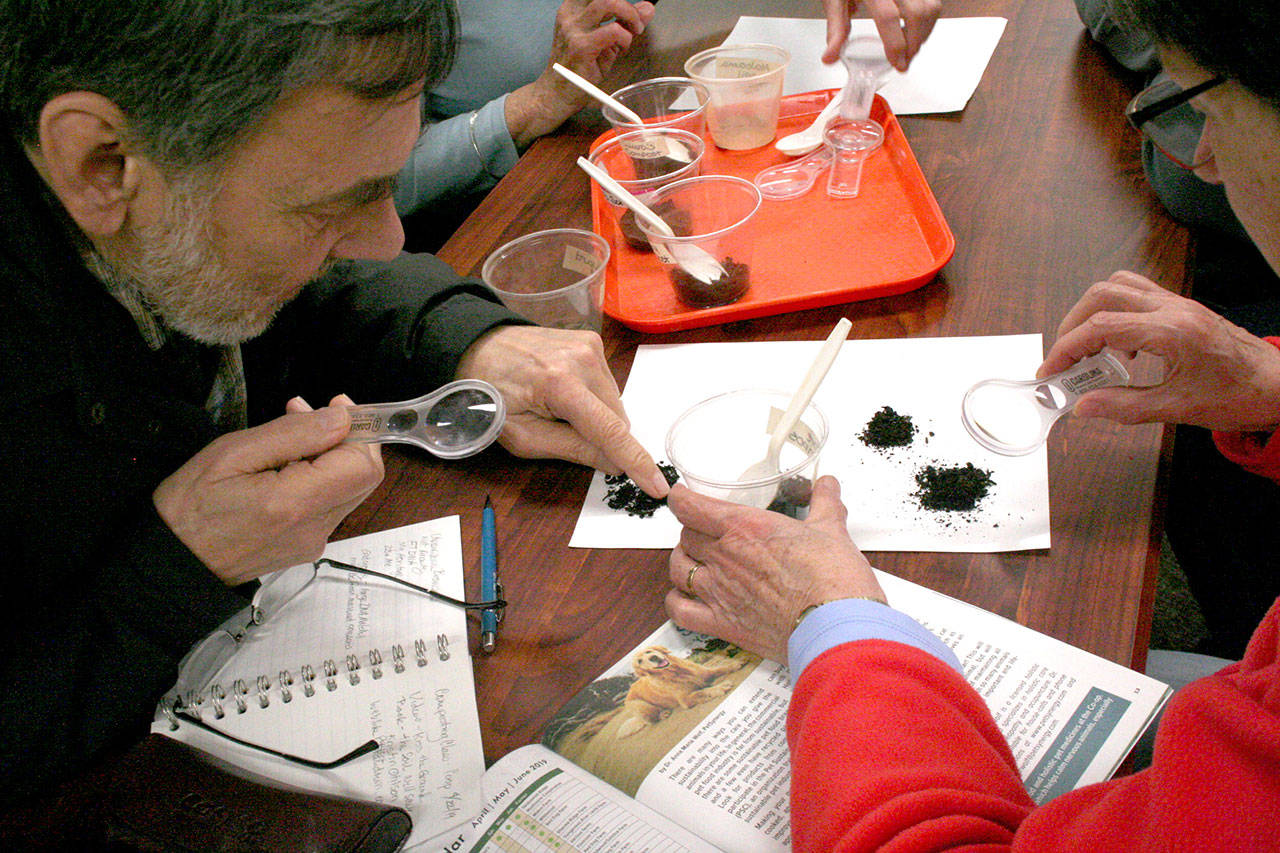PORT TOWNSEND — On Earth Day, about two dozen Jefferson County residents attended a workshop to learn about the organic material they have in their homes that can stay out of landfills and help return nutrients to the soil.
Laura Tucker, a waste reduction outreach coordinator for Jefferson County Public Health, brought her background as a science teacher Monday to lead the class at the Food Co-op Annex in Port Townsend.
Tucker cited landfill statistics that show 39 percent compostable material, 32 percent recyclable and 29 percent garbage.
“My mission is to get those two corners [recyclables and garbage] as close to zero as possible,” she said.
Tucker covered the basics in “Composting 101 — because a rind is a terrible thing to waste.”
“You don’t have to do too much,” she said. “Nature is doing a lot already.”
The key is finding a good ratio of carbon-based material such as leaves, branches and corn stalks with nitrogen-based items such as food and garden waste.
The carbon-based items are typically dry and brown, while the nitrogen-based items are wet and green.
Adding more of one or the other helps balance the consistency and help micro-organisms thrive.
Then again, Tucker said it often doesn’t matter.
“I don’t mix this, ever, and mine seems to work out,” she said.
Tucker showed examples of composting bins. One was a small bucket that loads from the top, has a few vents for minimal aeration and empties near the bottom. Another was a large drum suspended off the ground that included a handle to turn like a Bingo cage to mix the contents.
Tucker recommended keeping the compost covered from the top and sealed at the bottom to keep away rodents and other animals.
“Start with a container and put it in the sun,” she said. “Plant something wonderful in its place when you’re done.”
Among the contributing factors to good compost are oxygen, temperature, moisture, pile size and particle size, Tucker said. The larger the pile, the longer it will take for the organic matter to break down into smaller segments, she said.
Once the compost bin gets started, Tucker said you can add many items to it, including fruit and vegetable waste, old spices and dried-up herbs, coffee grounds and filters or shredded paper.
She also advised participants to keep meat, cheese, fish and any peels that have been sprayed with pesticides away from your compost bin.
“The meat products have different bacteria, they smell and they can attract creatures,” Tucker said.
Class participants sifted through several small containers of soils, from store-bought compost to samples from other locations. They used magnifying glasses to see if they could find any differences between them.
While they may not have looked the same, Tucker said they’ll do the trick.
“The best compost you can make is the compost you make at your own house,” she said.
________
Jefferson County Managing Editor Brian McLean can be reached at 360-385-2335, ext. 6, or at bmclean@peninsuladailynews.com.

